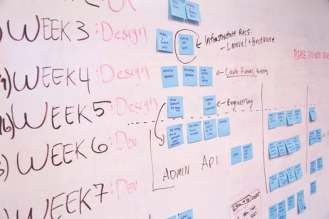Career change? What about Project Management?
One profession that presents interesting opportunities as we move towards the future of work is project management.
The latest research by the Project Management Institute (PMI) makes impressive reading. Their ‘Pulse of the Profession 2017’ survey is the result of extensive global research involving over 3000 senior executives and project managers.
The good news is that success rates have risen; that is, less money is being wasted on unsuccessful projects in the companies that took part:
- Organisations are wasting $97 million for every $1 billion invested in projects – a 20% reduction from 1-year earlier and a lot of this is down to better project management but
- Organisations that don’t invest in proper project management waste up to 30 times more than those that do.
(By the way, the survey reveals that the main reason why projects fail is lack of clear project objectives and milestones; areas where the good project manager can make a major difference).
Another piece of good news is the PMI estimate that, in the next ten-years, the demand for project managers will increase by 33%. The UK is one of the eleven countries that will drive this increase.
Projects come in all shapes and sizes, of course, from large company-wide ERP implementations to local initiatives designed to improve a small part of the business. With the level of change that we are seeing, there are plenty of ways the new project manager can build experience to prepare for more complex work.
The PMI report that the industries needing more project managers are wide ranging: manufacturing and construction, information services and publishing, finance, professional services, utilities and energy. However, organisations are looking to select staff who have the skills needed to be a strong project manager, not necessarily based on their industry experience. Project managers with strong stakeholder engagement, communication, collaboration and business management skills – and then the technical skills are provided once on board.
But there is another key area that is linked and is also receiving a lot of focus.
It’s clear that Senior Executives are tired of getting to the end of projects only to realise that promised benefits are hard to trace or are intangible. Benefits management – the identification of project benefits, their realisation during project implementation and sustainment once the initiative has gone live – is playing a more important role.
Someone with strong project management skills, who has worked alongside a Project Management Office and understands benefits realisation will find themselves more and more in demand. Also, this is a profession that fits well with a freelance type work approach as companies often need a mix of permanent and contract resources.
And what a time to move into the project management area.
Organisations are starting to implement digital strategies and introduce new technologies at an increasing pace. This means that the methods and tools used in project management are changing to match demand; agile and predictive approaches and even the use of artificial intelligence to help with some of the more routine tasks.